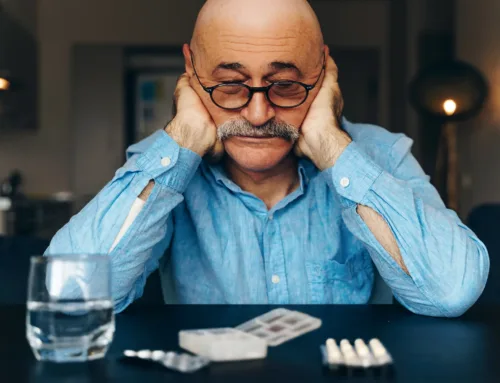Are There Negative Effects to Stopping Drinking Cold Turkey?
To stop bad habits and begin recovery immediately, some individuals who struggle with drinking will quit alcohol consumption without warning and force their bodies into detox mode.
While this desire to begin recovery without delaying the process is noteworthy, there are several considerations needing to be taken into account first. The side effects of cold turkey detox can be unpleasant and oftentimes further treatment than just detox is required for sobriety to be successfully maintained.
What is cold turkey?
Quitting cold turkey is when someone who is struggling with a substance use disorder decides to not partake in substance use any longer. They do not consume any more alcohol after their final drink, they do not seek medical help in detox and they undergo the experience of withdrawal symptoms without any medication.
Withdrawal symptoms are illness-like symptoms that occur when the body is no longer being supplied with the chemicals it had come to rely on through constant alcohol consumption. When the body is forced back into its normal chemical balances, it often first needs to rewire itself. This is often experienced in the form of withdrawal symptoms.
Common withdrawal symptoms you may experience if you stop drinking suddenly include:
- Anxiety
- Agitation
- Sweating
- Insomnia
- Rapid heart rate
- High blood pressure
- Nausea and vomiting
- Hallucinations
- Tremors and body shakes
Delirium tremens and seizures – though rare – are categorized as the most severe withdrawal symptoms one can experience. If they are going to occur, they most often do so when the individual has a severe, long-standing addiction and no medical intervention is provided during detox.
Is it that bad to detox cold turkey?
Do people successfully detox without medical/professional supervision? Well, some individuals do detox without seeking treatment, but whether or not the detox is successful is up for some debate. Oftentimes, those who detox cold turkey and do not pursue additional rehab are more prone to relapse.
This is because addiction is a body-mind experience, where both the physical body and the mental space of the individual suffer from the influence of alcohol. When you suddenly stop drinking, you force your body into a state of recovery where it has no choice but to adapt to the lack of chemicals in its system.
What you cannot force your body to do, however, is recover quickly from the mental effects of addiction. The thought processes and consequent behaviors involved in addiction are not so easily changed when alcohol consumption is stopped.
These thought processes can often cause you to succumb to cravings when they inevitably arise. This can be increasingly dangerous because oftentimes people relapse and consume the same amount of alcohol they were accustomed to drinking before detox – a detoxed body does not have the tolerance to handle this amount, and overconsumption or other fatalities may occur as a result.
Lastly, one of the additional negative side effects of quitting alcohol cold turkey is the experience of withdrawal symptoms. Nothing is standing between you and the full effect of the above-mentioned symptoms, which may make detox incredibly uncomfortable and even more likely to end in relapse.
Are there other options besides cold turkey detox?
Detox does not have to be the painful and uncomfortable experience that cold turkey detoxing tends to be. Treatment centers provide detox programs that slowly walk you through the process of detox so the full negative side effects of withdrawal are curbed and the risk of relapse is decreased.
Most of the time detox treatment programs provide you with detox plans that include medically assisted detox. This practice is the use of medications – usually benzodiazepines – to help mitigate the full experience of withdrawal and help promote sustained recovery. Tapering doses are used where, as the symptoms of detox lessen, the amount of medication you are receiving decreases as well.
When completed in a treatment facility, this form of detox has a higher success rate because aftercare options are made available as well. This includes programs like individual counseling sessions, group therapy options, holistic recovery practices and medication-assisted treatment (MAT) options.
By utilizing these aftercare options in addition to the initial detox, you can feel more supported and more stable in your overall recovery journey.
Looking for an alcohol detox program?
If you are not sure where to begin in pursuing recovery from alcohol use disorder, Freedom Detox is here to help. Contact our staff anytime online, or feel free to give our offices a call at 800-475-2312.
We look forward to walking with you on your journey to freedom.





